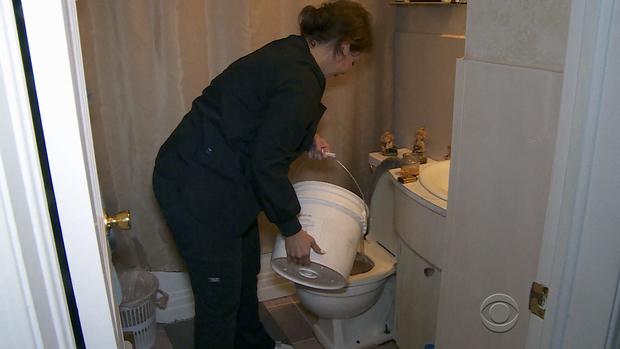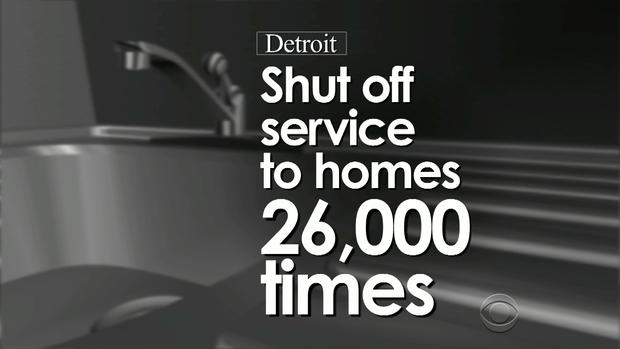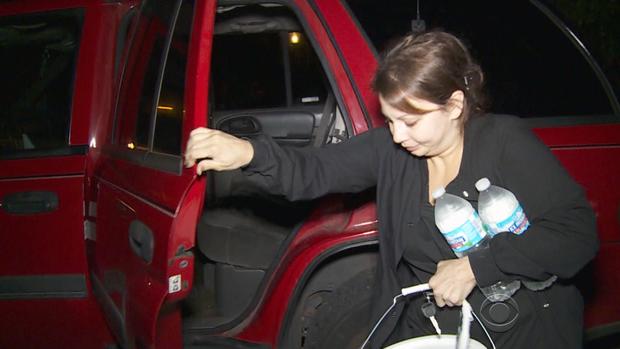Detroit water shut-offs bring U.N. scrutiny
DETROIT - By 11 p.m., Rayanne Sadowski has worked two jobs. But she still makes time to pick up water from friends and neighbors.
Water to flush her toilet, cook, drink and bathe. The city of Detroit cut off service in August after she failed to pay her $900 bill.
"I understand, I do owe the money," said Sandowski. "I used the water, but being able to afford to pay for it is another story."
"When you make $25,000 a year and you pay $500 dollars in rent on top of all the medication, my health insurance, I'm literally over my head."
"At the end of the day, everybody's gotta pay their water bill," said Alexis Wiley, chief of staff for the mayor, Mike Duggan.
"People in Detroit are paying higher rates because there are so many people who aren't paying," she said.
Since March, Detroit's water department shut off service to homes nearly 26,000 times. Within two days, 85 percent of the delinqencies received a partial payment.
"How high is your water bill?" asked a U.N. investigator.
"Our water bill is over $4,000," said a Detroit resident.
This United Nations Human Rights team has spent the last three days trying to figure out why the shutoffs are necessary.
Leilani Farha and Catarina de Albuquerque led the mission.
"People are living without dignity it's a human rights violation. the city should restore water to those unable to pay," said a representative of the U.N. team.
The mayor's office admits that for years the water department did a poor job collecting money it was owed. Then, when the city filed for bankruptcy last summer under the weight of its own creditors, the department decided to clamp down.
After a summer of protest the mayor announced a plan allowing low-income residents to pay their back bills over the next two years. Some qualified for grants from private donations.
"Our job as a city is to help as many people as possible," said Alexis Wiley.
But there are still 2,300 homes without water and the U.N. says it will keep pressuring the city until the shutoffs stop.



